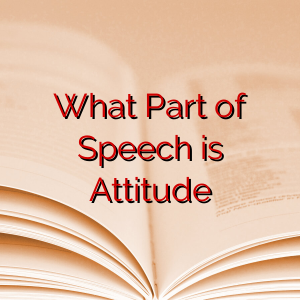What Part of Speech is Tomorrow
Tomorrow can be an adverb or a noun. An adverb is a word that modifies or describes a verb, adjective, or other adverb. Nouns name people, places, things, and ideas.
What Part of speech is Tomorrow
Tomorrow is an essential part of our language and can be used in various ways when speaking and writing. In this article we will discuss what part of speech tomorrow is, with examples to help demonstrate the different usages.
Adverb
Tomorrow can be used as an adverb when it describes a verb. It is often used to refer to something that will occur in the future.
For example:
• I will go to the store tomorrow.
• We will arrive tomorrow morning.
• He plans to finish his project by tomorrow.
• She is leaving tomorrow afternoon.
• We will have a meeting at noon tomorrow.
Noun
Tomorrow can also be used as a noun – as a reference to the future. It is often used to refer to the day after today.
For example:
• Tomorrow will be my birthday.
• We have a lot of work to do tomorrow.
• Many tests are scheduled for tomorrow.
• We are planning a trip for tomorrow.
• He has an appointment tomorrow morning.
Conclusion
In conclusion, tomorrow can be used as both an adverb and a noun in different contexts. When used as an adverb it modifies the verb to refer to something that will occur in the future and when used as a noun it is a reference to the day after today. By understanding how this part of speech works and its different usages, you can effectively use tomorrow in your own conversations and writing.
FAQs
Q1. Why is tomorrow an adverb?
Answer: Tomorrow is an adverb because it modifies the verb to refer to something that will occur in the future.
Q2. Which type of adverb is tomorrow?
Answer: Tomorrow is a temporal adverb, as it describes when an action will occur.
Q3. Why is tomorrow a noun?
Answer: Tomorrow is a noun as it is a reference to the future, or the day after today.
Q4. Is tomorrow a noun or pronoun?
Answer: Tomorrow is a noun and not a pronoun. A pronoun takes the place of another noun while a noun names people, places, things or ideas.

Hello! Welcome to my Blog StudyParagraphs.co. My name is Angelina. I am a college professor. I love reading writing for kids students. This blog is full with valuable knowledge for all class students. Thank you for reading my articles.

![What Part of Speech is Fast [ Adverb, Adjective ] What-Part-of-Speech-is-fast](https://studyparagraphs.co/wp-content/uploads/What-Part-of-Speech-is-fast-300x169.webp)

![What Part of Speech is 'May' [ Verb, Noun, Model Auxiliary ] What Part of Speech is ‘May’ [ Verb, Noun, Model Auxiliary ]](https://studyparagraphs.co/wp-content/uploads/What-Part-of-Speech-is-May--Verb-Noun-Model-Auxiliary-.png)
